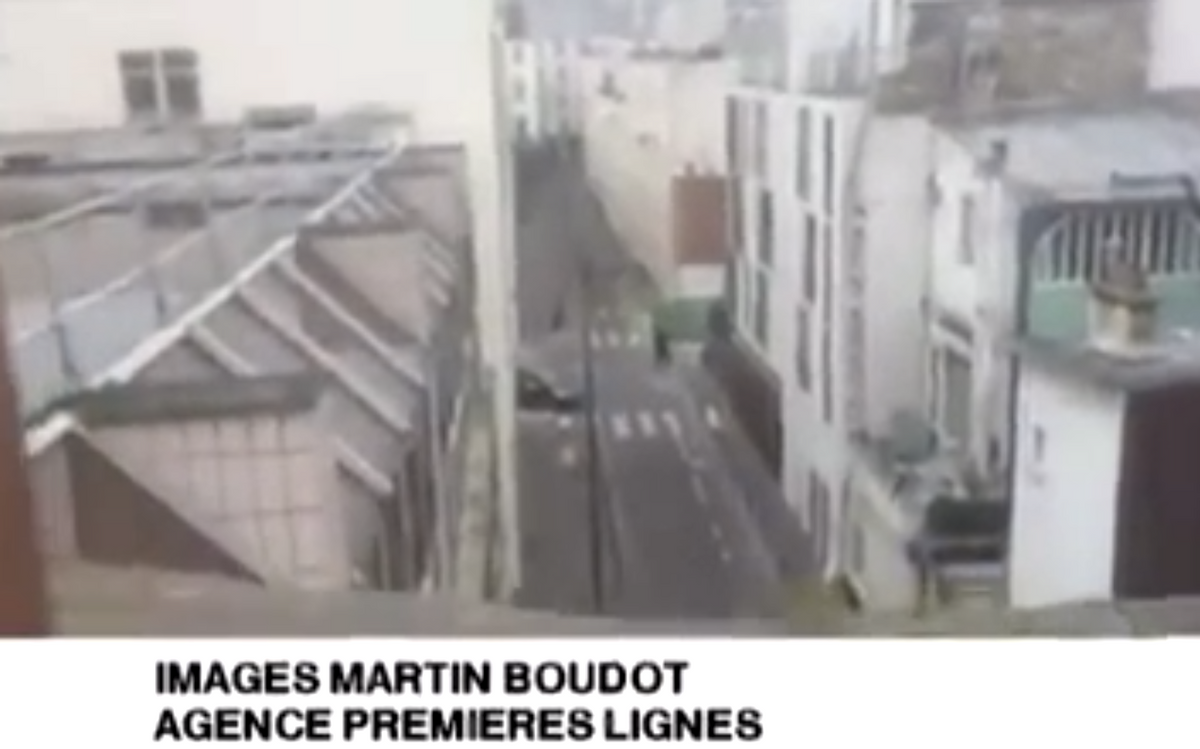In the wake of the tragic terror attack at French satire paper Charlie Hebdo, the media has had a range of professional responses. While some responded by printing the images of the incendiary cartoons for which the magazine was targeted — and indeed, view it as a necessary show of solidarity — others have opted for censorship of the images. We’ll update with more responses as they come in.
Washington Post cartoonist Ann Telnaes shared a cartoon, which ran on the WaPo website, that incorporates one of the Hebdo images:
[embedtweet id="552853991814492160"]
Douglas Murray in the Spectator suggests that: "Tomorrow, or some day this week every newspaper and magazine in Europe, the front-page of the BBC and Channel 4 News websites and every other major news site simultaneously [publish] a set of Charlie Hebdo’s depictions of Muhammad among others,” but cites the 2005 Danish cartoon affair as evidence that "the free press will fail this latest test too. For all its historic traditions, its self back-slapping for its alleged ‘bravery’ and so on, there are only a couple of tiny outcrops of freedom. The rest of the vast, powerful, fearless, outspoken tradition that is the Western press is too intimidated to publish a single cartoon that might conveivably provoke a Muslim.”
In a Guardian Op-Ed, Roy Greenslade writes: "Now, surely, is the time for the publishers and editors of mainstream publications across the world to honour the murdered staff of Charlie Hebdo by refusing to self-censor. Nothing, including a religion, should be off limits."
Other individual media figures tweeted out expressions of solidarity. This is from AFP’s Dave Clark:
[embedtweet id="552904335886385152"]
Slate editor in chief Jacob Weisberg expressed a similar view:
[embedtweet id="552821437678223361"]
While WikiLeaks' Julian Assange implored journalists to show solidarity by publishing the cartoons:
[embedtweet id="552821810224304128"]
Sites such as the Huffington Post, Gawker, BuzzFeed and the Daily Beast and Vox have all published slideshows of some of Hebdo’s most incendiary cartoons.
On the other end of the spectrum, some sites have opted to censor publication of the images. BuzzFeed reports that the UK's Telegraph is blurring out images of Muhammad, as is the New York Daily News.
[embedtweet id="552814280471367680"]
[embedtweet id="552824696744706048"]
Likewise, images of Charlie Hebdo editor Stephane “Charb” Charbonnier released by the AP, which show him holding a copy of the magazine, all have the actual cover image cropped out. AP’s Paul Colford told BuzzFeed: “You’re correct: None of the images distributed by AP showed cartoons of the Prophet Muhammad. It’s been our policy for years that we refrain from moving deliberately provocative images.” The Guardian initially opted for self-censorship before later publishing the full image.
[embedtweet id="552917968846610432"]
And the editor of the UK’s Jewish chronicle defended himself on Twitter about his decision not to publish the images:
[embedtweet id="552818595634610179"]
[embedtweet id="552818930382024704"]
[embedtweet id="552861936866848768"]
Meanwhile, cartoonists across the world have continued to respond by sharing their own images in solidarity with the victims:
[embedtweet id="552844593046097920"]
[embedtweet id="552888670718803968"]
[embedtweet id="552859473937580032"]

Shares